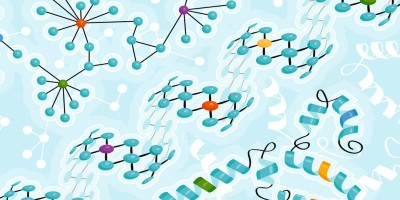In Africa, there is a disparity in ethics and permission requirements for molecular research on samples from living people versus ancient DNA. At the precipice of the archaeogenomics revolution, heritage agencies require updated policies and procedures for genetic and genomic research on African ancient DNA.
References
Morris, A. G. Ancient DNA comes of age, but still has some teenage problems. S. Afr. J. Sci. https://doi.org/10.17159/sajs.2017/a0232 (2017).
Prendergast, M. E. & Sawchuk, E. Boots on the ground in Africa’s ancient DNA ‘revolution’: archaeological perspectives on ethics and best practices. Antiquity 92, 803–815 (2018).
Racimo, F., Sikora, M., Vander Linden, M., Schroeder, H. & Lalueza-Fox, C. Beyond broad strokes: sociocultural insights from the study of ancient genomes. Nat. Rev. Genet. 21, 355–366 (2020).
Tindana, P. & Wasunna, C. in Research ethics in Africa: a resource for research ethics committees (eds Kruger, M., Ndebele, P. & Horn, L.) 125–134 (SUN MeDIA, 2014).
Wasunna, C. & Bukusi, E. A. in Research ethics in Africa: a resource for research ethics committees (eds Kruger, M., Ndebele, P. & Horn, L.) 33–40 (SUN MeDIA, 2014).
Chi, P. C., Horn, L. & Kruger, M. in Research ethics in Africa: a resource for research ethics committees (eds Kruger, M., Ndebele, P. & Horn, L.) 63–70 (SUN MeDIA, 2014).
Pálsdóttir, A. H., Bläuer, A., Rannamäe, E., Boessenkool, S. & Hallsson, J. H. Not a limitless resource: ethics and guidelines for destructive sampling of archaeofaunal remains. R. Soc. Open Sci. 6, 191059 (2019).
Sirak, K. A. & Sedig, J. W. Balancing analytical goals and anthropological stewardship in the midst of the paleogenomics revolution. World Archaeol. 51, 560–573 (2019).
Horn, L., Sleem, H. & Ndebele, P. in Research ethics in Africa: a resource for research ethics committees (eds Kruger, M., Ndebele, P. & Horn, L.) 81–90 (SUN MeDIA, 2014).
South African San Institute. San code of research ethics. South African San Institute http://trust-project.eu/wp-content/uploads/2017/03/San-Code-of-RESEARCH-Ethics-Booklet-final.pdf (2017).
Acknowledgements
The author thanks the individuals in the University of Cape Town repository, W. Black of Iziko Museum for leading the conversations locally, and the community activists who are striving for better stewardship of human remains in South Africa.
Author information
Authors and Affiliations
Corresponding author
Ethics declarations
Competing interests
The author declares no competing interests.
Additional information
Supplementary information
Rights and permissions
About this article
Cite this article
Gibbon, V.E. African ancient DNA research requires robust ethics and permission protocols. Nat Rev Genet 21, 645–647 (2020). https://doi.org/10.1038/s41576-020-00285-w
Published:
Issue Date:
DOI: https://doi.org/10.1038/s41576-020-00285-w
- Springer Nature Limited
This article is cited by
-
Inadvertent human genomic bycatch and intentional capture raise beneficial applications and ethical concerns with environmental DNA
Nature Ecology & Evolution (2023)
-
Genetics and Archaeology
African Archaeological Review (2023)
-
Ethics of DNA research on human remains: five globally applicable guidelines
Nature (2021)


